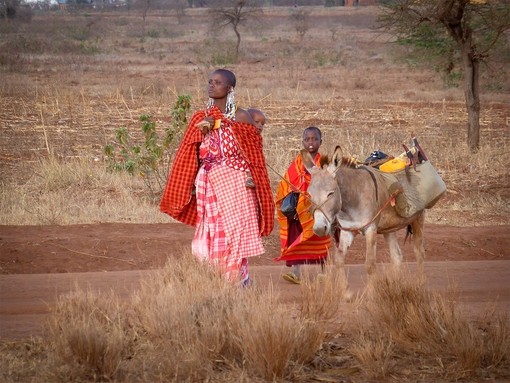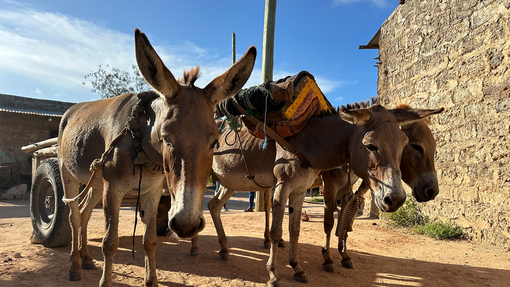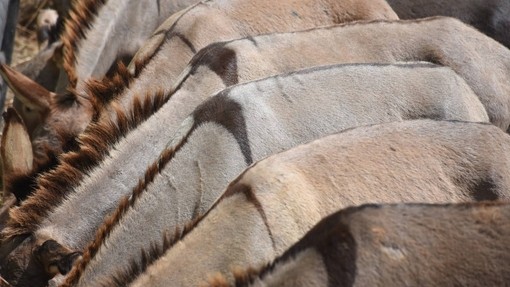
Donkeys targeted in the skin trade
Maasai villages in Tanzania have been left reeling after dozens of donkeys were found slaughtered in the bush to fuel the fast-expanding trade of donkey skins for use in traditional medicine and beauty products.
Twenty-four donkeys were found dead in Naberera village having been slaughtered and skinned near people’s homes. Weeks before, 70 more animals were discovered killed in a village nearby.
“It’s a crisis in the community,” says Johnson Lyimo, founder and director of the Meru Animal Welfare Organisation (MAWO), partners of The Donkey Sanctuary. In Tanzania families rely on donkeys for a variety of essential jobs like carrying water, firewood and taking goods to market. “Without the donkeys the family will be starving and the children can’t go to school, they don’t have another means of travelling,” adds Johnson.
With help from The Donkey Sanctuary, MAWO has set up a Donkey Security Network, which functions like a kind of neighbourhood watch to help track donkeys and prevent them from being transported out of the area without permission. “It has already prevented thefts because they can’t take donkeys out of the district,” Johnson says.
“Without the donkeys the family will be starving and the children can’t go to school”
But as demand for skins increases, thieves are adapting quickly. “Now [the thieves] have come up with a new technique of killing the donkeys and only taking the skin. It’s easy to put the skin in the bag and take it away,” says Johnson.
“As well as the impact on the community, the welfare of the donkeys is being severely compromised at slaughter as the skills and equipment will not be available to dispatch the animals humanely. Our hearts go out to the people affected too, it must be truly horrific to discover your donkeys killed in this way,” says Andy Foxcroft, Director of Care and Welfare at The Donkey Sanctuary.
To respond quickly to the change in tactic, MAWO, funded by The Donkey Sanctuary, are building 10 shelters to protect donkeys in four villages with large donkey populations that are near the bush and therefore more vulnerable to thefts. They are also spreading the word through leaflets and on local radio to strengthen the Donkey Security Network.
For now the Maasai are supporting each other by sharing their remaining donkeys between families but this solution can only last so long.
“What we are doing right now is to secure the donkeys,” Johnson says. “Not only us, it’s the whole community.”
In Asia, donkey skins are used to produce gelatin (ejiao), which is traded as a traditional medicine and beauty product. Sky rocketing demand has led to shortfalls of donkeys in countries that rely on environmentally friendly donkey power.
The Donkey Sanctuary cannot endorse or support an industry that compromises the welfare of donkeys and their owners, and is currently undertaking an investigation into the trade and collecting evidence on the ground.
Share this page
Tags
- News






